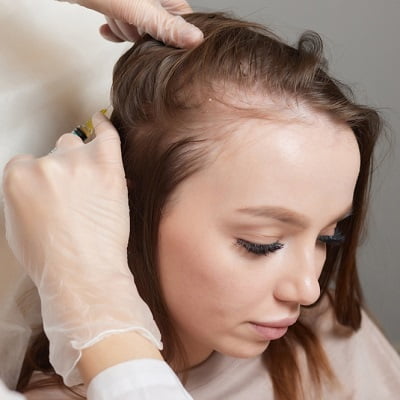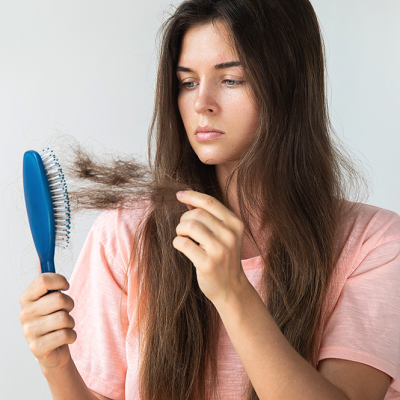
Are you one of a lot of women who are worried about losing their hair? Moreover, do you want to restore your hair and know the Best Hair Treatment for Women’s Hair Loss in Pakistan? Therefore, SKN Clinic Islamabad offers you all the best and most advanced restoration treatments. However, understanding the core reasons for hair loss is important for choosing the best treatment methods. Therefore, consultation with the expert is very important. Additionally, you can talk with them about the different available treatment options for women who want to restore their natural hair look.
Causes of Hair Loss in Women
Certain reasons are different for everyone. Therefore, to treat these issues, understanding the cause is crucial. However, there may be one or more reasons for your loss.
- Hormonal Imbalance: Changes in hormones, like those that happen during pregnancy, menopause, or conditions like polycystic ovary syndrome (PCOS), can make hair loss and thinning worse.
- Genetics: Genetics play a big role in female pattern hair loss, which causes hair on the head to thin over time.
- Nutritional Deficits: Not getting enough important nutrients like biotin, vitamin D, and iron can stop hair from growing and cause hair loss.
- Stress and Lifestyle Factors: Stress, bad eating habits, and lifestyle choices like smoking and using too much heat on your hair can weaken hair cells and make hair fall out faster.
What Is the Best Hair Treatment for Women’s Hair Loss in Pakistan?
After accessing the root cause, finding What Is the Best Hair Treatment for Women’s Hair Loss in Pakistan is the next step. However, hair specialists or surgeons can suggest which will work for you.
Minoxidil
Minoxidil helps hair grow by making hair cells bigger and the hair growth phase last longer. It makes hair strands thicker and longer. For best results, apply the topical minoxidil solution directly to your head once or twice a day, based on your taste and the concentration of the product.
Clinical tests have shown that minoxidil can help women with inherited hair loss grow new hair. Results are usually obvious after a few months of constant use.
Therapy with Platelet-Rich Plasma (PRP)
PRP treatment involves taking platelet-rich plasma from the patient’s blood and injecting it into the head to help hair follicles grow back and repair themselves.
PRP therapy improves hair density and thickness; both men and women who suffer hair loss or thinning hair can see noticeable changes. You might need more than one session of PRP therapy to get the best results, and you should keep getting treatments to keep the hair growing over time.
Surgery To Transplant Hair
Hair transplant surgery involves moving healthy hair follicles from donor areas to recipient spots on the head. The two main ways are follicular unit transplantation (FUT) and follicular unit extraction (FUE).
People with stable donor hair areas and realistic hopes about how the procedure will turn out are the best candidates for hair transplant surgery. After hair replacement surgery, most people can return to normal routines within a few days. However, they may feel some pain and swelling at first. In most cases, hair growth starts within a few months, and you can see the full effects after 12 to 18 months.
Micropigmentation of the scalp
Professional makeup artists use special colors on the scalp during SMP to hide areas of thinning hair or baldness and give the impression of a bigger head of hair.
To improve your head’s look without surgery, scalp micropigmentation is a non-invasive and cost-effective option. You may need to get touch-ups regularly to keep your desired look.
Consult with Expert
Losing your hair can be upsetting because it can affect your appearance, confidence, and sense of self-worth. Moreover, it is very important to get help from specialists. It will help you determine what is causing your problem and what treatments will work best for you.
SKN Cosmetics offers full talks with experienced professionals. They will look at your unique case. Further, they will consider your medical background, lifestyle, and the pattern of hair loss you are experiencing. After thorough tests and talks, these experts can make treatment plans based on your specific needs and concerns.









